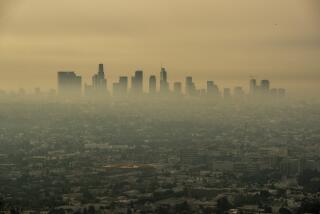A Litigious Schwarzenegger Wants to Close the Door to Others
Arnold Schwarzenegger recently filed a lawsuit over the unauthorized use of his likeness on a plastic bobble-head doll.
It was not his first trip to court. Schwarzenegger also has sued an Ohio car dealership for using a “Terminator” photo. He’s litigated against a greeting card company that used his picture. And it was his threat to bring suit that stopped the sale of Governator Ale.
Schwarzenegger even threatened to sue my consumer group. In 2001, we filed a case against the restaurant founded by Schwarzenegger, Schatzi on Main, and in the press release called it “Schwarzenegger’s restaurant.” His lawyer wrote a letter threatening a defamation lawsuit and noted, “It is well known that my client is no stranger to litigation to enforce his legal rights.” (He also claimed that disseminating the letter itself would be “a violation of the copyright act,” since he apparently had copyrighted the communique.)
You would think, given all this, that Schwarzenegger would at least understand the importance of the courts for redressing wrongs. But perhaps not. Last week the governor signaled support at a California Chamber of Commerce breakfast for a November ballot initiative that would prevent lawsuits by environmental, consumer and civil rights groups against corporations.
Schwarzenegger told the chamber that he would work with the group to “get rid of shakedown lawsuits.” The chamber’s initiative would gut California’s Unfair Business Competition Law, which was enacted in 1933 to prevent companies that cheat from continuing to profit. The law has been a principal tool of many public interest groups, which use it to stop dangerous corporate practices before the public is harmed.
Environmental groups sued oil companies under the law for polluting California’s drinking water with MTBE and forced Big Oil to clean up its mess before anyone got hurt. When Safeway changed the date on old meat, consumer groups sued to force the supermarket chain to properly restock its shelves. Policyholder groups sued insurance companies in demanding fairer reimbursement for losses after the Northridge earthquake.
Not surprisingly, the November initiative is being financed by a roll call of the state’s largest corporations, including British Petroleum, Safeway and State Farm. Many of these companies have written checks to the governor. Schwarzenegger has received $1.3 million from big firms, which have given $2 million to the initiative.
Corporations like the initiative because it would prohibit public interest groups from bringing cases to enforce the law, allowing this to be done only by governmental agencies, which are slow to move and can be overly influenced by political pressure.
The initiative also would eliminate lawsuits now filed in order to prevent injuries. The measure would allow lawsuits only after so many people had lost money or property that they could constitute a class entitled to take legal action.
This means that almost all cases to protect the environment would be eliminated, since most involve the degradation of water, air or earth, not lost money or property; it also means that tangible losses could take decades to detect. That’s why the Sierra Club and other environmental groups declared last week: “Banning groups like ours from bringing legal action to stop polluters means that companies that violate California’s clean air and water safeguards can continue to harm the environment with impunity.”
There is no question that Schwarzenegger believes in lawsuits in the name of business. As governor, he also should believe in litigation for the protection of society. That’s particularly true under the Unfair Business Competition Law, in which there already are safeguards against so-called shakedowns. Cases are decided by judges, not juries, which corporations say are too easy to convince. No damages are available under the law, only an end to unscrupulous practices and an order that money be given back if someone was robbed.
The real question may be whether Arnold Schwarzenegger values the public’s legal rights as much as his own. His stand on the initiative will be the litmus test of whether damage to the environment, public health and society is as important to him as misuse of his own image and name. If a plastic likeness of a public figure is important enough for a lawsuit, shouldn’t pollution of our drinking water and air be?
More to Read
Inside the business of entertainment
The Wide Shot brings you news, analysis and insights on everything from streaming wars to production — and what it all means for the future.
You may occasionally receive promotional content from the Los Angeles Times.










